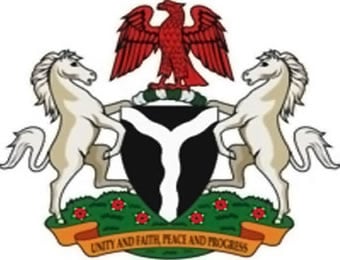Oniha said this on the second day of the African Securities Exchanges Association (ASEA) 2018 Conference and Annual General Meeting hosted by the Nigerian Stock Exchange (NSE) in Lagos.
She spoke on the theme “ Pathways to Inclusive Growth in Africa, Digital Finance, Financial Literacy, Inclusion and Democratisation of Wealth.”
She said that the amount was raised in the last 18 months since the creation of Federal Government Savings Bond in March 2017.
Oniha said that a total of 13,200 retail investors had been attracted to the market.
The News Agency of Nigeria (NAN) reports that the savings bond programme was introduced in March 2017 to boost domestic investors’ participation in the bond market.
ALSO READ: 1.3 million people in Borno may face food crisis —FAO
“From the 18 months of the creation of the FGN savings Bonds, we have been able to raise N10.5 billion and attracted 13,200 retail investors into the market, Oniha said.
She lamented that the fund raised and the number of investors was very minimal when compared to the amount government spent on enlightenment campaign.
According to her, a lot still needs to be done to strengthen the financial inclusion of the Federal Government.
Oniha said that the target of the Federal Government of Nigeria in the Savings Bond had not actually been met.
She said that DMO was presently studying the possibility of using phones as was being used in Kenya by investors to participate directly in the government securities.
“From the 18 months of the creation of the FGN savings Bonds, we have been able to raise N10.5 billion and attracted 13,200 retail investors into the market.
“As you know the DMO borrows on behalf of the government. One of our objectives is to be able to issue our securities in a timely manner and at a very minimal cost,” Oniha said.
While responding to question on the use of technology in government securities, she said: “the issue around what technology can do in terms of raising capital is extremely important to us.
“We, traditionally for a long-term have been serving only a segment of the market, the institutional investors and foreign investors.
“There is no buy-side from the retail investors because they need to be knowledgeable and familiar to invest in the sovereign bond,” Oniha said.
Mr Albert Wigwe, Access Bank Plc, Managing Director, said that a greater number of people could be reached with technology.
“There is a flow of huge technology changes. Today with technology, you can reach out to a greater number of people and financial institutions are deploying technology to enhance service delivery.
“The traditional way to make money is vanishing, so we need to look at other ways to make money and cut cost.
“We have 65 per cent of Nigerians who are youths and they are an important segment of the society. So, at Access Bank we are using technology to reach the youths and change how people transact business.
“Today usage of cards are no longer on the increase because of increase in technology through phones.
“Today, you can use your phone to transact business even in the remote areas. So we are using technology to influence consumer behaviours because competition and technology are pushing people to new ways of doing things,” Wigwe said.
Also speaking, Mr Alex Okoh, the Director-General, Bureau of Public Enterprises (BPE), said that the major task of government was to create an enabling environment for business to strive.
“So our role is to create reform. Like in the telecommunications sector, we carried out reforms which have contributed to the growth of the telecom sector,” Okoh said.






